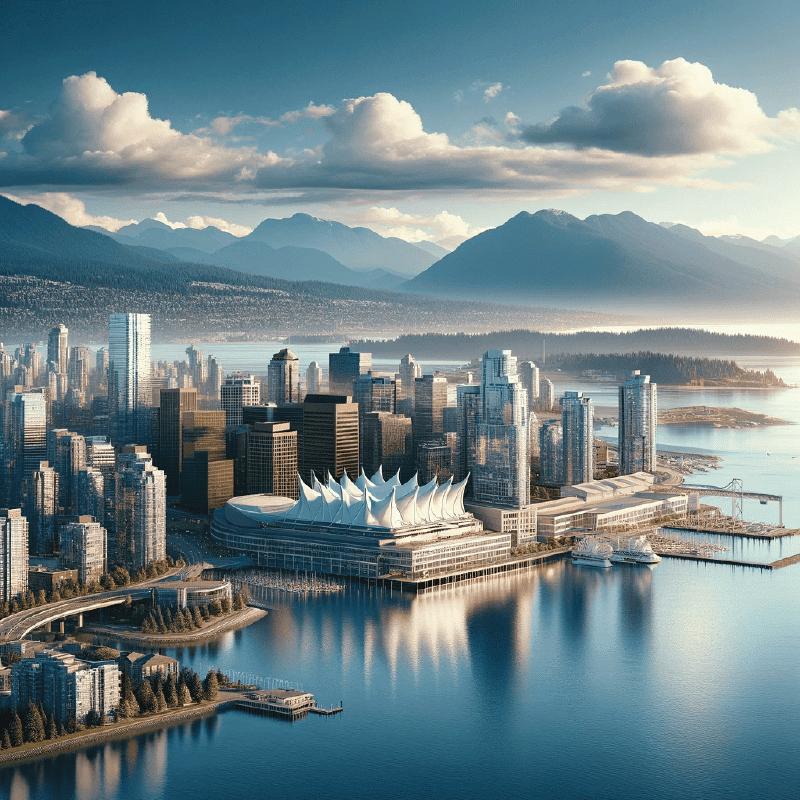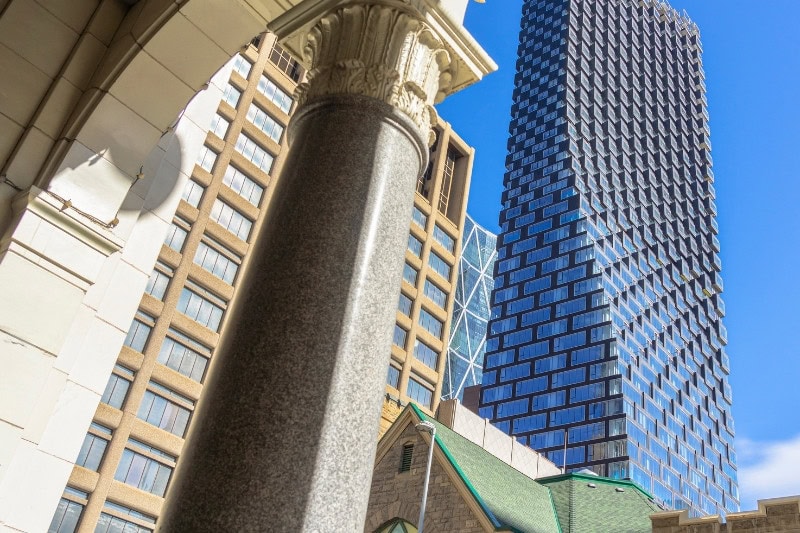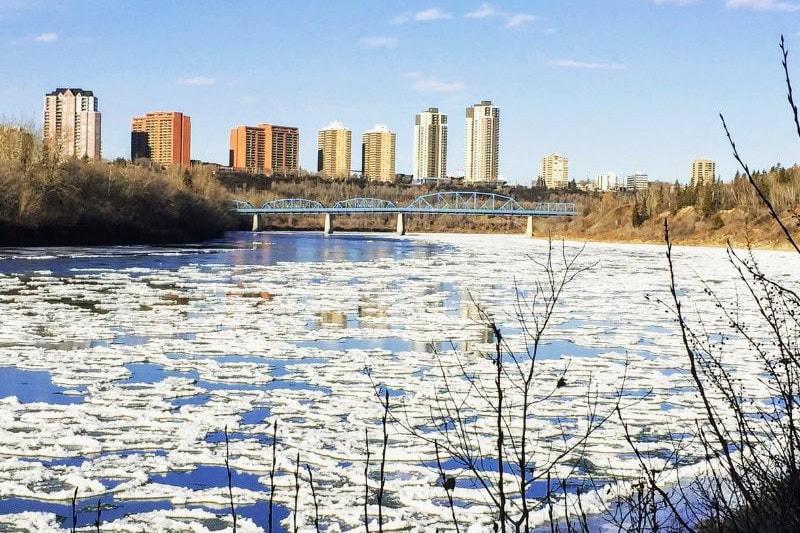Nestled between the majestic Pacific Ocean and the towering Coast Mountains, Vancouver stands as a city of promise and natural wonder. As the pulsing heart of Canada’s West Coast, it’s a place alive with potential and rich experiences. When pondering, “Is Vancouver a good place to live?”, one must balance its vibrant qualities against certain drawbacks.
This city lures you with unmatched outdoor living, a flourishing economy, and a cultural fabric that deepens its societal appeal. Yet, the cost of living and unique weather patterns present challenges to consider. As we explore the pros and cons of living in Vancouver, we provide a nuanced look at this key question for prospective residents and immigrants.
Immigration news directly into your inbox
Pros of living in Vancouver
Lets take a look at some of the pros of living in Vancouver, British Columbia.
Great quality of life
Vancouver is known for its excellent quality of life. The city has a low crime rate compared to other Canadian cities, making it a safe place to live. The city is abundant in green spaces, including Stanley Park, and boasts a wealth of outdoor activities that contribute to a healthy lifestyle.
Vancouver also offers unique shopping and entertainment experiences, with venues like Granville Island and Pacific Centre drawing in both residents and visitors.
Urban greenery
Vancouver is a verdant oasis where lush green spaces are interwoven into the city’s very essence, reflecting a deep-rooted commitment to environmental preservation amidst urban development. The city is a haven for nature lovers, with sprawling parks and community gardens that invite residents to connect with the outdoors. Iconic neighborhoods like the West End are adorned with a rich canopy of trees, offering shady retreats and enhancing urban walkability.
City planners have meticulously designed Vancouver to maintain unspoiled views of its natural vistas, ensuring that the striking scenery of mountains, forests, and water remains accessible to all. This thoughtful integration of nature within the city’s blueprint not only beautifies but also contributes to the overall well-being of its inhabitants, solidifying Vancouver’s status as a city that truly values its environmental heritage.

Thriving job market
Vancouver’s job market stands out as a bustling hub of opportunity, characterized by its dynamic and diverse economic landscape. The city is home to a burgeoning technology sector, known for its innovative startups and established tech giants, creating a hotbed of opportunities for IT professionals and digital creatives. Coupled with this is Vancouver’s storied film production industry, which has earned it the nickname “Hollywood North.” Here, professionals in the creative arts, from CGI artists to set designers, find a thriving scene with constant demand for their skills.
The finance sector in Vancouver is equally robust, with a growing number of financial services firms offering careers in banking, investment, and insurance. This economic multiplicity fosters an environment ripe for professional development and career advancement, drawing a skilled workforce from across the globe.
Furthermore, Vancouver’s commitment to sustainability and green initiatives has given rise to a new wave of jobs in the clean energy and environmental sectors, broadening the city’s employment landscape even further. The educational institutions in and around Vancouver, including world-class universities and colleges, contribute to a steady stream of graduates ready to enter these diverse industries, ensuring a continual infusion of fresh talent and ideas.
Diverse culinary scene
Vancouver’s dining scene is a feast for the senses, boasting an array of eateries that cater to every craving. From the freshest sushi reflecting the city’s coastal roots to the robust flavors of time-honored Italian dishes, there’s no shortage of culinary exploration. Canadian comfort food spots offer a taste of local tradition with a focus on regional, seasonal ingredients. Food markets buzz with the energy of vendors serving international street food, while upscale restaurants provide locally-sourced menus against the city’s scenic backdrop.

Walkable city
Vancouver’s urban planning is a testament to its commitment to walkability, creating a cityscape where convenience and accessibility are at the forefront. The city’s infrastructure, with its comprehensive network of pedestrian paths, wide sidewalks, and traffic-calming measures, encourages residents to walk rather than drive. This not only promotes a greener environment by reducing vehicular emissions but also contributes to the physical well-being of the community.
Amenities such as grocery stores, schools, parks, and entertainment venues are strategically located within walking distance of residential areas, fostering a lifestyle that values health and wellness. The result is a vibrant street life and a sense of connectedness among residents, as the simple act of walking facilitates more frequent social interactions and strengthens community bonds.
Public transit system
Vancouver is distinguished by its world-class public transportation system, which stands as a cornerstone of the city’s urban design. The extensive and highly efficient SkyTrain network serves as the backbone of this system, with its far-reaching lines connecting the bustling downtown core with outlying neighborhoods and even suburban communities. This driverless light rail system provides frequent and swift service, cutting through the cityscape with ease and offering panoramic views of the surrounding beauty.
Complementing the SkyTrain is a comprehensive network of bus routes, ensuring that even the most remote areas of the city are well-connected. Vancouver’s buses are known for their punctuality and coverage, bridging gaps in the train network and providing flexible routes that adapt to the evolving needs of its residents.
Airport connectivity
Vancouver International Airport (YVR), an award-winning facility, stands as a premier global gateway, connecting the city of Vancouver with destinations across the continents. This airport, lauded for its efficient design and the cultural art installations that reflect the region’s heritage, offers an expansive network of international and domestic flights, making the world more accessible to Vancouver residents and bringing a diverse tapestry of travelers to the city’s doorstep.
Located on Sea Island in Richmond, just south of the city center, YVR is seamlessly integrated into Vancouver’s transportation fabric through the Canada Line of the SkyTrain system. This rapid transit link provides a smooth and scenic journey from the heart of downtown to the airport terminals in under 30 minutes. The convenience and reliability of this connection underscore the city’s commitment to sustainable transport and ease of access for travelers and residents alike.
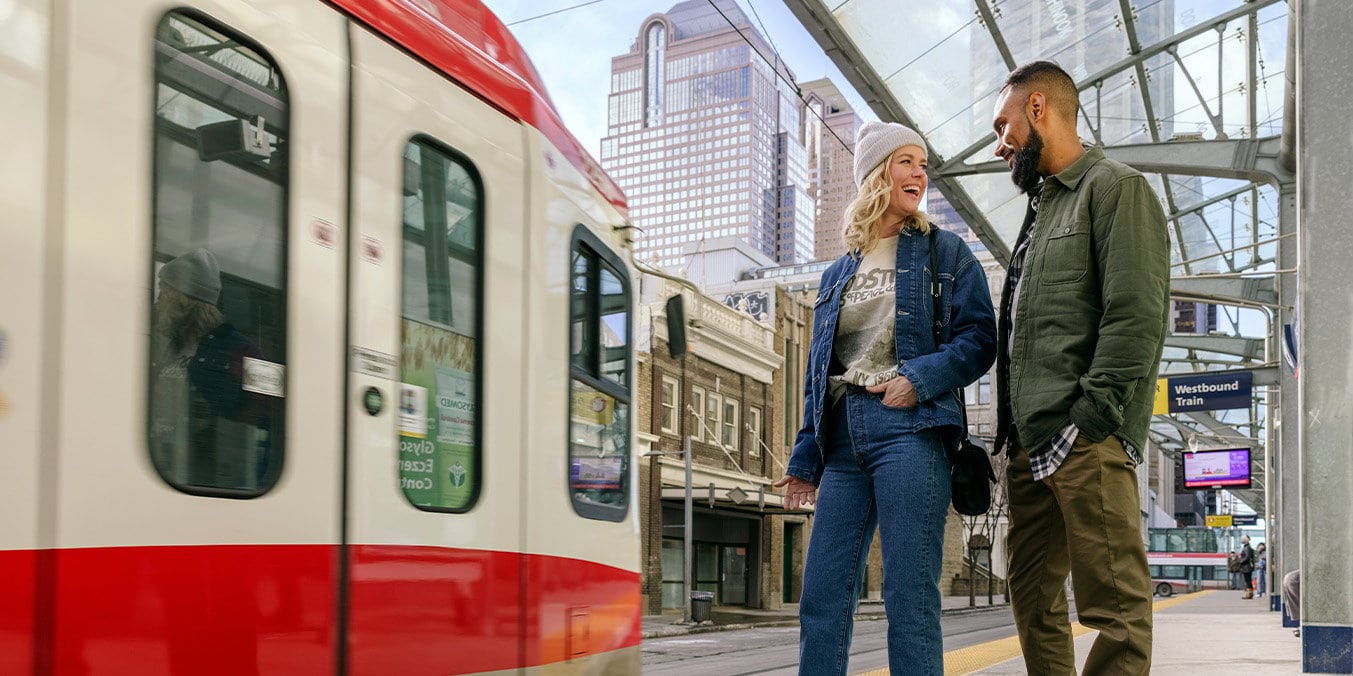
Cons of living in Vancouver
Let’s take a look at some of the cons of living in Vancouver, British Columbia.
High living expenses
Affordability remains a significant challenge in Vancouver, particularly within the housing market. With real estate prices among the highest in North America, finding budget-friendly housing is a considerable hurdle for residents.
The issue extends beyond just housing, affecting the overall cost of living and potentially impacting the city’s diversity. Local authorities are working towards solutions, such as promoting affordable housing projects and considering rent controls, to help make Vancouver more accessible for everyone.
Rainy climate
Vancouver’s climate is distinguished by its rainy season, lasting from the fall to the spring, which can be quite a shift for those from sunnier locales. This precipitation supports the city’s rich greenery and contributes to Vancouver’s reputation for natural beauty.
While the rain nurtures the environment, it also shapes local life, where outdoor activities adapt to the wet conditions and indoor pursuits offer respite. Despite the damp, Vancouverites find joy in the rain’s rhythm, which sets the stage for vibrant urban living amidst the elements.
Summer smoke
In recent years, Vancouver has faced the recurring challenge of wildfire season, an issue that typically emerges in the summer months. Smoke from these fires can drift into urban areas, leading to a decrease in air quality and a veiling of the city’s characteristically clear and blue summer skies.
This not only mars the picturesque vistas that residents and visitors cherish but also poses health concerns, especially for those with respiratory conditions. The local authorities often issue air quality advisories during these times, urging caution and advising residents to minimize outdoor activities when the smoke levels peak.
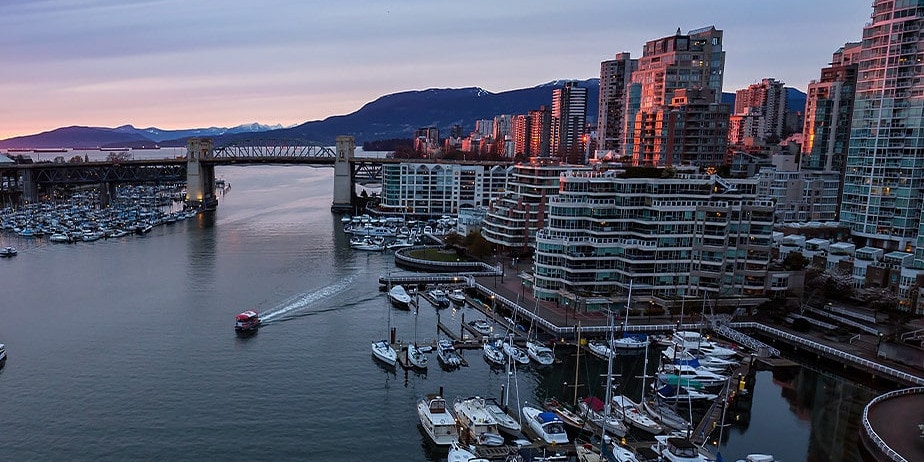
Theft rates
Theft remains a persistent issue in Vancouver’s urban landscape, with bicycles and personal items in vehicles frequently targeted. This concern prompts residents to take proactive measures to safeguard their possessions. Investing in high-quality locks, secure storage solutions, and vigilant personal practices becomes part of daily life for many. The city’s law enforcement agencies continually work on strategies to combat theft, but the community’s awareness and preventive actions are crucial in mitigating this urban challenge.
Despite these concerns, Vancouver’s overall crime rate remains relatively low, and the city’s efforts to improve security and foster a culture of mindfulness contribute to maintaining its status as a safe urban environment.
Muted nightlife
Vancouver’s nightlife may not match the intensity of Toronto or Montreal, but it offers a variety of quality bars, clubs, and music venues that cater to its relaxed West Coast vibe. Patrons can enjoy expertly crafted drinks, local beers, and diverse music ranging from jazz to electronic. While the options are more limited, they reflect Vancouver’s cultural diversity and commitment to quality over quantity, providing a more intimate yet satisfying night out.
Is Vancouver a good place to live conclusion
So, is Vancouver a good place to live? It’s a city of contrasts, offering a blend of remarkable natural beauty, a dynamic urban landscape, and an enviable lifestyle. With its abundant outdoor activities, commitment to green living, and excellent infrastructure, the city has a lot to offer.
However, the cost of living and certain urban challenges are factors that require careful consideration. Vancouver can provide an exceptional living experience for those who are prepared for its particularities and are willing to embrace the city in all its diversity.
Nicola Wightman
Nicola Wightman is a regulated Canadian Immigration Consultant (RCIC) under the College of Immigration and Citizenship Consultants (CICC). Her professional immigration consultant number is R706497.
Learn more about Vancouver
You will find helpful information about setting up in this vibrant and lively city.
Vancouver Social Groups: Connect, Network, and Build Friendships
Discover how Vancouver social groups can help you connect, network, and build lasting friendships in this vibrant city.
Moving to Calgary from Vancouver: What You Need to Know
Moving to Calgary from Vancouver brings new opportunities with its growing economy and affordable living. This guide provides essential tips to help you transition smoothly and enjoy your new city.
Edmonton vs Vancouver: West Coast or Prairie Cities?
Deciding between Edmonton vs Vancouver? Explore the unique lifestyles, attractions, and affordability of Canada's West Coast dream and Prairie metropolis!
Start Your Canadian Immigration Journey
Our experts make the process clear, stress-free, and successful, so you can move forward with confidence and focus on what matters most.

Get Started Today
"*" indicates required fields
